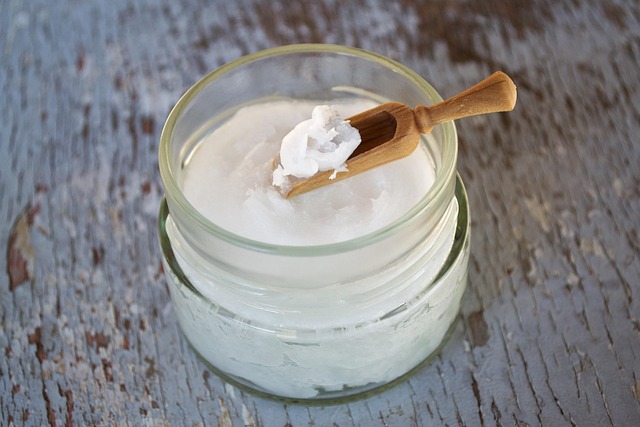Ousting fleas from your dog or cat is no easy task. These tiny, hardy parasites seek blood meals by hopping on and biting pets every single day. You may find yourself looking for a natural flea remedy that avoids chemicals and possible side effects.
This begs the question: Can you apply coconut oil to your pet’s coat or mix it into their food to fend off fleas?
The short answer: maybe. Veterinarians and scientists are divided on the effectiveness of coconut oil as a natural flea remedy. What they do agree on is that coconut oil is safe when used properly on pets, though more research is needed to confirm its full benefits.
Let’s explore what we do know about coconut oil to help you decide if it’s a valid option for your pet.
What Is Coconut Oil and Why Consider It for Fleas?
Coconut oil packs a lot of benefits. For starters, coconut oil contains four key properties: it is antimicrobial, antibacterial, antifungal, and full of antioxidants. It’s also loaded with healthy fatty acids like lauric acid, as well as vitamins E and K and minerals such as iron.
Advocates of coconut oil’s use on pets say it’s safe when used correctly and versatile. It can help heal minor wounds, soothe flaky skin, reduce itching from allergies, and support digestive and immune health.
Experts recommend choosing high-quality coconut oil—USDA-certified organic, virgin, and cold-pressed. Avoid deodorized coconut oils due to added chemicals.
Before using coconut oil as a flea remedy, talk with your veterinarian to ensure it’s appropriate for your pet.

How to Use Coconut Oil for Flea Control
Applying coconut oil to your pet’s coat to repel or kill fleas is becoming more common. A layer of coconut oil can suffocate fleas, while the lauric acid scent may deter them from returning. Plus, it can improve your pet’s skin health.
Always apply coconut oil outdoors, as fleas may jump off and hide in bedding or furniture. Rub the oil from your pet’s face down to the tail, or mix two to three tablespoons with warm water in a spray bottle to spritz the coat. You can cover your pet’s torso with a clean T-shirt to prevent licking.
Leave the coconut oil on for six to eight hours, then rinse thoroughly with warm water and a pet-safe shampoo. Towel dry and reward your pet with a treat.
Flea Comb Method
You can also dip a flea comb in coconut oil and use it daily to remove fleas from your pet’s coat.
Is Coconut Oil Safe for Pets?
Always consult your veterinarian for personalized advice. Factors such as age, weight, and health conditions matter. Too much coconut oil can lead to stomach upset, diarrhea, or vomiting.
Monitor your cat or dog after application. Some pets, especially those with pancreatitis or on low-fat diets, may not tolerate coconut oil well.

Comparing Coconut Oil to Other Natural Flea Treatments
Here’s how coconut oil stacks up against other natural flea remedies:
- Apple cider vinegar: Dilute with water and apply using a spray bottle or damp cloth (with vet guidance).
- Diatomaceous earth: Sprinkle on pet bedding, furniture, or baseboards to dehydrate fleas—but never directly on your pet.
- Essential oils: Only use with your vet’s approval, as many are toxic to pets.
Conventional Alternatives to Coconut Oil for Flea Control
For proven protection, consider topical flea treatments like Frontline Plus or Advantage II, oral medications like NexGard and Bravecto, or flea collars such as Seresto. Always follow product directions.




